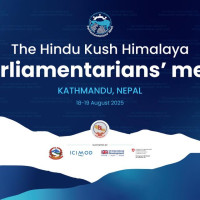- Sunday, 17 August 2025
How Music Helps Personal Healing
Music is one of humanity's oldest friends. Interestingly, it has been an important and integral aspect of human life from the pulsating drum beats of ancient ceremonies to the streaming playlists of the digital age. It is beyond mere amusement that music has a significant impact on our mental, emotional, physical, and spiritual well-being. All cultures across the world have long believed that music has the power to inspire, heal, and transform and is also being more and more supported by science. Depending upon how it is utilised, like any instrument, its impacts can have both positive and negative.
The ability of music to affect our emotions and mental health is one of its most well-known advantages. The main stress hormone, cortisol, is produced by the body less when listening to gentle, slow-tempo music. In order to assist patients, relax before treatments, hospitals frequently play soothing instrumental music in the waiting rooms. In a University of Maryland research, for instance, patients who listened to calming music before surgery reported much lower levels of anxiety than those who did not.
Reward system
Dopamine, a neurotransmitter linked to motivation and pleasure, is released when music activates the brain's reward system. While a heartfelt ballad can provide solace during sadness, a vibrant song can quickly improve a dismal mood. Music communicates a language deeper than words, which is why many people automatically turn to it after a trying day or when they are experiencing emotional upheaval. Background music, especially instrumental one, can improve memory and focus for a sizable number of people. Studies continue to indicate that by boosting attention span and lowering mental tiredness, some music can improve learning, although the widely reported "Mozart Effect" may have been overblown.
In order to foster a more concentrated atmosphere, ambient music is occasionally utilised in companies and schools. It is not only linked to emotional well-being but also provides physical health advantages. Intrinsic pain-reduction mechanisms of our brain are activated by music. Patients recovering from surgery or going through hostile treatments like chemotherapy frequently report feeling less uncomfortable when listening to their favorite music. Some hospitals have been using customised playlists in maternity wards to help women manage labor pain. Upbeat music helps energize the body and promote circulation, while slow, rhythmic music can reduce blood pressure and pulse rate.
According to a study published in the journal Heart, hypertension might have its blood pressure and can be considerably lowered by just 30 minutes of relaxing classical music. Sleep quality can be enhanced by listening to soothing, steady-tempo music, such as ambient or gentle classical tunes. Making nighttime music can help people with insomnia fall asleep more quickly and enter a calmer mood. Another application of music is in physical rehabilitation. On one hand, research says, singing therapy aids in the restoration of speech in patients with brain damage, and stroke victims can utilise rhythmic beats to retrain their walking patterns. Rehabilitation activities may be more successful owing to the brain's innate synchronization with rhythm.
Music not only has the power to heal the individual but also improves social cohesion. It has been reported in several studies that music clubs and even karaoke sessions encourage interpersonal relationships and lessen feelings of loneliness. Moreover, sometimes known as the bonding hormone, oxytocin secretion is enhanced, while creating music together fosters empathy and trust. It has been highly humorised a term “bathroom singer”, music is a secure means of expressing feelings that may be hard to put into words. Following natural disasters, music frequently plays a major part in memorial services and healing gatherings during times of collective mourning. Following the 2015 Nepal earthquake, for instance, numerous towns held music concerts to promote hope and uplift spirits.
Music can be harmful if it is overused or subjected to excessive amounts of it, despite all of its benefits. Listening to high-volume music with headphones can cause noise-induced hearing loss. Extended exposure to noise levels higher than 85 dB may be detrimental according to the World Health Organisation (WHO). For some people, listening to depressing or violent music makes their bad feelings worse. For example, depression gets worse if a person with depression only listens to depressing music. Music with intricate lyrics or sudden tempo shifts can distract from reading or problem-solving. Before bed, on set of sleep is delayed if we listen to upbeat or fast-paced music that may activate the nervous system.
Mindful listening is essential to maximising music's positive effects while minimising its negative ones. Instrumental, slow-tempo, or nature-inspired music (60–80 beats per minute) is often advised to obtain maximum benefits. Likewise, it is advised to use background music with no lyrics in order to reduce attention. On the other hand, high-energy music is also suggested to increase enjoyment and endurance. It is not always your current mood to determines what kind of music you should listen to.
Maximum benefits
To get maximum benefits, it is suggested to limit headphone sessions to less than an hour at a time and keep the volume below 60 per cent of the device's maximum. Many nations currently legitimise music as a therapy. Licensed music therapists in the USA operate in hospitals, schools, and rehabilitation facilities by customising to each patient's needs. Music-based activities have been practiced in Nepal for improving adolescents' and trauma survivors' mental health. It is an encouraging example that the application of music therapy to dementia patients is shown to be effective. Listening to familiar music from a patient's early years can bring back memories, elevate their mood, and calm them down.
It is a "medicine" that is readily available, reasonably priced, and free of negative side effects when taken properly. Music serves as a reminder of our common humanity, whether it is soaring notes of a symphony, the steady rhythm of a drum, or the straightforward humming of a lullaby. As our society is becoming increasingly noisy, making the appropriate sound choice can be a self-care effort. Hence, we can transform music from a background to an active collaborator on our path to health and well-being through attentive listening.
(Executive Director of Health Concern, Dr. Lohani, lohanis@gmail.com.)



-original-thumb.jpg)
-square-thumb.jpg)












